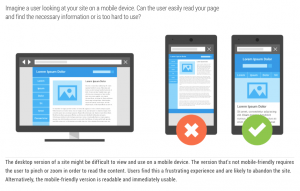— May 22, 2019
Nobody is perfect. Sooner or later, even the best leaders experience a setback. Whether they made a mistake or proved unable to handle an unexpected challenge, all leaders must learn to develop personal resilience to overcome disappointments and failures. More importantly, they must learn from these situations to become more effective. By building personal resilience, leaders confront challenges with newfound agility that allows them to foster connections, improve performance, and promote innovation.
Self-Awareness
In order to be more resilient, leaders first need to understand how they respond personally to setbacks and disappointments. This self-awareness helps leaders to recognize their own motivations and how they impact their behavior. Part of developing this awareness also comes from understanding how they are perceived by others. If people think they aren’t doing a good job of providing support and leadership, they can take that as a sign that they need to make some adjustments in their approach to managing teams.
Self-awareness not only helps leaders become more resilient, but it also helps them connect with others. This enables leaders to build resilience in their teams, providing people with the tools and support they need to overcome setbacks and other challenges. Organizations looking to implement leadership resilience development strategies can start by promoting emotional intelligence to increase self-awareness.
Flexibility
Being resilient often requires quite a bit of flexibility, which allows leaders to adapt to changing situations. When new opportunities present themselves or existing solutions cease to be viable, they must be able to adapt and reimagine strategic direction quickly.
Effective leaders find ways to build sustainable success despite setbacks because they are flexible enough to revisit or rethink decisions when new information becomes available or based on their experience. They also understand that their actions could produce unintended consequences, and they have the wherewithal to adapt in ways that account for them without getting distracted from either short or long-term organizational goals.
Persistence
Resilient leaders understand that mistakes or failure don’t represent an end, but rather a means to deliver better outcomes. They evaluate why mistakes and failures occur and gather insights that will help them avoid similar results in the future. By creating a clear vision for others to strive toward, leaders can generate enthusiastic support for strategic initiatives and avoid a commitment dip when setbacks inevitably occur. A persistent focus on key priorities enables them to deliver measurable results even in the face of significant challenges.
Being able to inspire others is important for cultivating an individual’s or team’s willingness to stay with something until it is completed. Leaders must first work on being resilient and persistent in their own pursuits, continually working to drive performance and investing in the right accelerators to create value for stakeholders. They can then turn their efforts toward how to improve resilience in the workplace. Team members may need additional resources to meet difficult challenges or simply require some direction and advice after experiencing disappointment. Providing these forms of support can help teams build the resilience needed to persevere through problems and setbacks.
Confidence
Leaders often need to set an example for their teams, providing them with the motivation and inspiration necessary to drive engagement and build commitment. Facing and overcoming challenges helps resilient leaders build the confidence they need to create high-performing, accountable teams. Without those experiences, they may struggle to remain firm and calm in the face of difficult situations. Their poised and steady demeanor makes it easier for them to connect with their teams to secure the buy-in necessary for implementing solutions.
Of course, confidence should never be confused with arrogance. Successful leaders recognize that their decisions are anything but infallible. What sets them apart, however, is their ability to objectively assess situations and connect with their teams in order to adapt and deliver in ways that drive positive business results.
What sets successful leaders apart is their ability to demonstrate resilience in the face of disappointments. By learning from their mistakes and failures, they can build the competence needed to pursue an organization’s big picture goals over a long period of time while still managing the demands of day-to-day operations.
Becoming agile leaders, with the ability to connect, adapt, and deliver regardless of the situation, requires leaders to develop personal resilience. Organizations that focus their development efforts on building the next generation of agile leaders would benefit from also focusing on helping them develop personal resilience.
Business & Finance Articles on Business 2 Community
(28)






